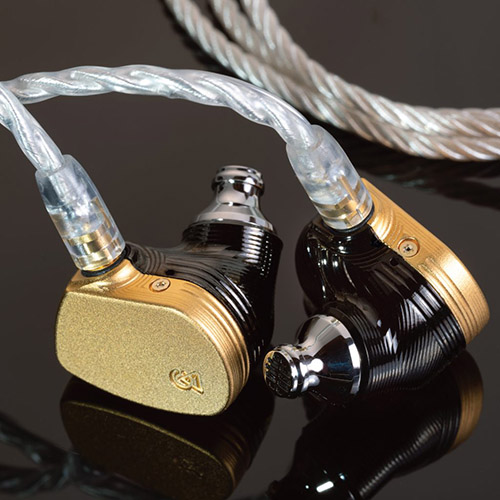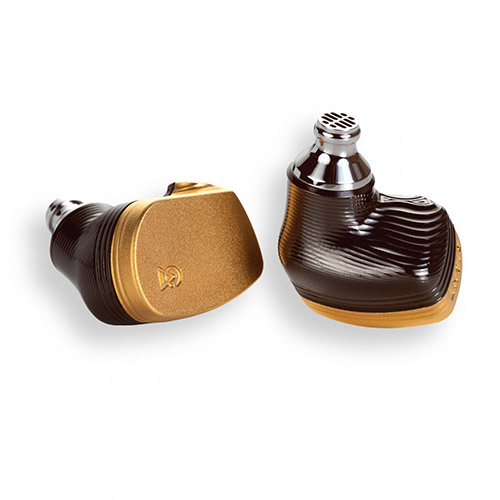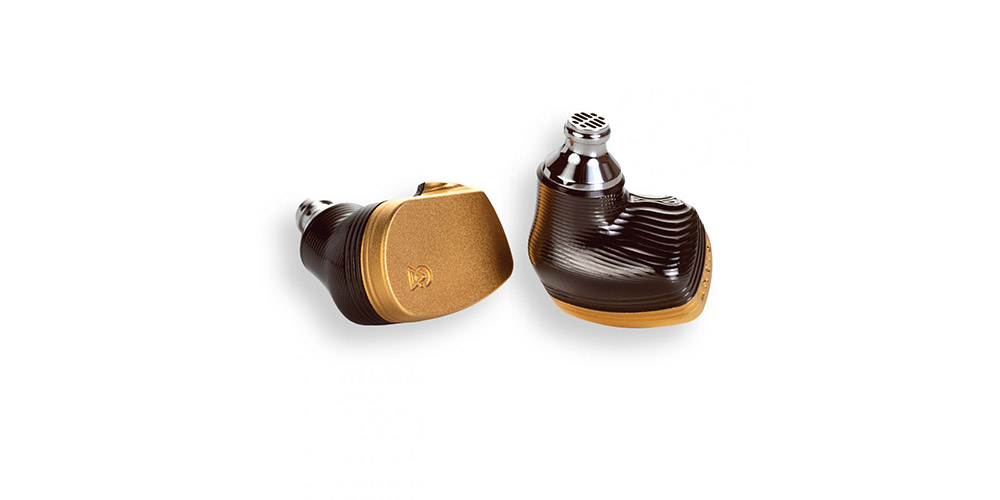The new and much-anticipated Campfire Audio Solaris finally sits on my review desk. At $1499, this earphone follows on the success of the Campfire Andromeda S and Atlas, both released earlier this year. But as the new flagship IEM for Campfire, how does it compare to its siblings? And can it beat the competition?
Campfire Solaris Review

As a successor to the Atlas, the Campfire Solaris provides the brand with a new flagship IEM, and one that has audiophiles straining their ears – in some cases, quite literally.
Design
Featuring a four driver hybrid design, the Solaris utilizes two BA drivers for the highs, one BA for the mids, and a dynamic driver for the lows. All of this lies within a PVD body with a gold-plated lid. For durability’s sake, the nozzle remains stainless steel.
Though pretty posh, these premium parts offer some extra weight to the Solaris. On top of this, the driver housing reaches a significantly larger size than that of any other Campfire model. As such, fit may be hit-or-miss for a lot of prospective listeners, and different eartips will further complicate this.
Using the included silicon tips from Campfire, the sound feels harsh. Skipping to the included Final E-Type eartips improves this, but the foam tips are the best option here.
While at first a little uncomfortable, my ears eventually come around to the fit. And in all fairness, I’ve tried even less comfortable earphones. But the Solaris offers a sound that makes up for the initial discomfort of putting these things in and finding your ideal eartip size.
In addition to a whopping eleven pairs of eartips, the Campfire Audio Solaris also comes with a cleaning tool, a shearling-lined case, and the new Super Litz cable, a silver-plated interchangeable MMCX cable.
Sound Quality
In terms of sound quality, the Campfire Solaris offers a balanced and neutral listening experience with a strong, articulate bass response.
Lows, while natural and reserved, never appear too accentuated like those of the Andromeda or the Atlas. Like the Andromeda S, these lows are more reserved, but unlike that of the Andromeda S, the overall sound is tighter with less splash or reflection. The articulate bass of the Campfire Solaris doesn’t come across as over-emphasized, but it does feel like has some grip to it – like that of the Andromeda.
The midrange leans forward just a tad, with good presentation and resolution. For the price and the premium design, the Campfire Solaris delivers a performance on par with what you would expect, and these mids are no exception to this. Like the Andromeda S, the mids on the Solaris seem isolated from the low and high ends of the frequency range. However, it’s plain to see there’s much more resolution and detail here.
If the lows are neutral and reserved, the highs appear even more so. To my ears, the sound seems almost rolled, though it may just be incredibly accurate with no brightness or undue extension. This results in a dry but detail high end – one that sounds beautiful, but not over-accentuated. Strings and higher-pitched vocals sound incredibly lifelike, but never wax too emphatic.
Soundstage on the Campfire Solaris also deserves mention. While this neutral, lifelike sound can come close to other earphones at this price point, the breathtaking space and depth of the soundstage cannot be beat. Sure, the stuff from 64Audio might have it licked, but you’d have to spend an extra $500 to get there…and even then I think the difference between the two would be marginal. Instead, I’d be much more content to kick back and listen to the Solaris…

Recommendations
For folks who want an incredibly lifelike and resolving sound, with airy soundstage and some traction in the low end, the Solaris offers an impressive option. Indeed, for neutrality and soundstage, few headphones can compete at this price point. The only real contender I can think of might be the Noble Katana, but that earphone is more expensive and doesn’t feature the same level of depth.
If you’re the type who likes ample extension in the lows and highs, skip this model and go with the Campfire Atlas instead at $1299. Sure, it’s no longer a flagship…but it does offer a more v-shaped sound signature for fans of rock, hip-hop, and electronica.
Headphone Dungeon Score

The Solaris manages four skulls, but to be honest I would say the sound alone measures five. Unfortunately, the huge size of the housing might make this an uncomfortable option for a lot of people. That being said, there are few other bones to pick with the Soloris; its rich-but-neutral sound, expansive soundstage, and the wealth of detail lurking inside will not disappoint.
Specifications
5Hz–20 kHz Frequency Response
115 dB SPL/mW Sensitivity
10 Ohms @ 1kHz Impedance
Less than 1% Total Harmonic Distortion
Get the Campfire Solaris for the best price at Audio46:

